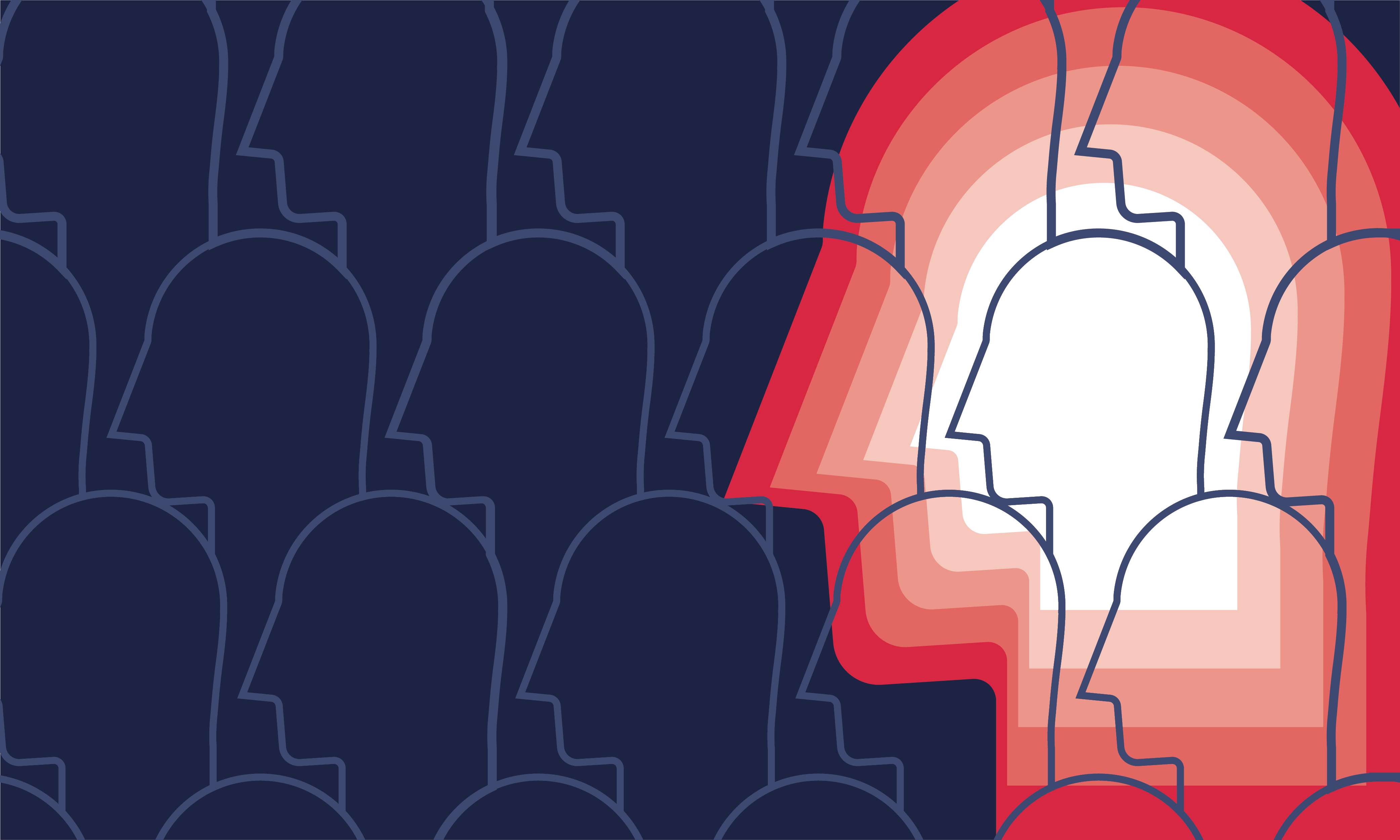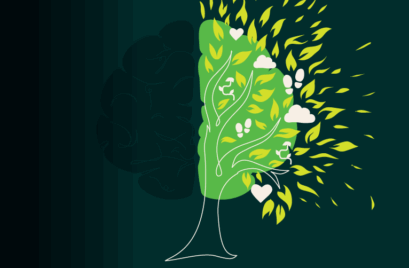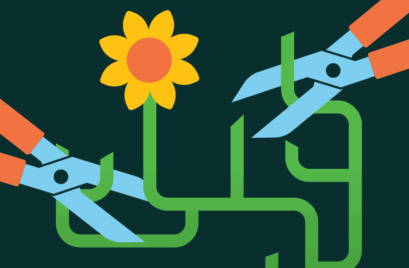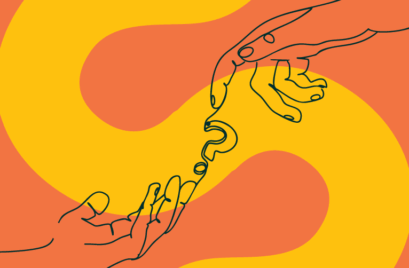
The power of kindness to bring us joy is a tale as old as time. The Buddha teaches:
“If you light a lamp for somebody, it will also brighten your path.”
What we have come to know as well is that kindness propagates. In 2015, Kathy Hart was inspired to donate a kidney to a complete stranger at the University of Minnesota Medical Centre. This in turn started the world’s longest kidney transplant chain resulting in 70 surgeries and 35 life-saving transplants. Kathy’s kindness ignited a string of similar acts of altruism.
The Science of Kindness
The science is increasingly confirming both of these fundamental insights into human behaviour. We know that kindness improves a whole range of positive outcomes for groups including cohesion, improved team morale and productivity. Biologically, studies have identified the release of positive chemicals in the brain following acts of kindness, which generate openness and pleasure.
Interestingly, a growing body of research is finding that acts of kindness spread powerfully through systems. Studies completed by Dr Jamil Zaki and his colleagues from Stanford University demonstrate that when we see our peers being kind, we are significantly more likely to practice kind behaviours ourselves, such as charitable giving.
Similarly, a meta-analysis in the Journal of Applied Psychology on the impacts of “organisational citizenship behaviours”, altruistic or helpful actions, found a positive correlation between these acts and a number of high-level organisational outcomes such as productivity, efficiency, and customer satisfaction.
There are varying theories for this phenomenon. Some believe it’s due to conforming tendencies; we want to act similarly to our communities. Others point to the modelling aspects of it; we are interested in experiencing the same pleasures that our peers seem to be.
The Need for Kindness
The motivators aside, what’s clear is that we are living in a time where kindness in the workplace has never been more needed. Many of us are feeling disconnected and disorientated, after months at a stretch in remote work, dealing with all manner of challenges from home schooling to lockdowns.
And what’s more, we are experiencing a mixed bag of impacts with the pervasive presence of technology. While keeping us connected on the one hand, technology presents unique challenges on the other, as we battle with endless video calls and a sense of always being on.
Research published in the Journal of Social and Personal Relationships has found that the mere presence of a mobile phone on a table when two people are talking, can decrease the depth and quality of their connection. This is not to mention the worrying consequences we see around the alienating and “othering” effects of online communication and social media.
So, if kindness makes us and others feel good, why don’t we all practise it more? Well, there are a few false mindsets in the workplace, which are commonly holding us back in this space.
Kindness at Work
Being “time-poor”
Kindness in interactions can often be seen as an inessential add-on, something we might practice if we have the time and, often, we don’t have the time. What we are missing with this perspective, is that kindness is integral to building trust, strength and meaning into our relationships and interactions. By centring kindness, we will find that our teams are operating better on all levels and will build powerful efficiencies in the long term.
Scarcity thinking
In some workplace cultures, we can become increasingly zero-sum in our thinking. We feel like we shouldn’t be giving kindness to others because it’s an effort, which we don’t owe them. Again, this is based on a misconception that kindness drains us in some away. Rather, the evidence demonstrates that acting with kindness brings us vitality and joy, and may in fact just turn around this culture.
Kindness = weakness
Finally, for those still operating under an “Old Power” understanding of leadership, kindness might be perceived as an admission of weakness or the fall of hierarchy. On the contrary, kindness is one of, if not your greatest tool, for effectively influencing and leading under the paradigms of New Power. New Power, which is fundamentally democratic, opt-in and self-governing is underpinned by relationships of trust and affinity, which are nurtured by kind environments.
The Kindness Ecosystem
If we think about our workplaces as ecosystems, connecting webs of relationships, interdependencies and feedback loops, we can understand how kindness can be an energy which flows through and can transform our whole system. Just as sunlight is the source of originating energy in our natural systems, kindness can be a dynamic principle for our human networks. It’s inherent capacity to flow and grow between people means it is one of your greatest assets in energising your teams.
So, think about building a kindness ecosystem in your workplace, in your next conversation, your next meeting and your next email to a colleague. If you’re looking for inspiration, the network at Random Acts of Kindness is a great place to start. Acts of kindness we can offer are:
- Giving of gifts to colleagues
- Public charitable donations
- Volunteering days
- Words of affirmation
- Celebrations
Ultimately, though, we already know how to be kind. It is part of being human, understood from our earliest interactions with others. It just takes one person to start the chain, which activates the system.
Further Readings
Andrew K. Przybylski and Netta Weinstein, “Can you connect with me now? How the presence of mobile communication technology influences face-to-face conversation quality” Journal of Social and Personal Relationships, 30(3), 2012: 237-246.
Jamil Zaki, “Kindness Contagion”, Scientific American.
Nathan Podsakoff, Steven Whiting, Philip Podsakoff & Brian Blume, “Individual- and organizational-level consequences of organizational citizenship behaviors: A meta-analysis.” Journal of Applied Psychology, 94(1), (2009): 122–141.
Ovul Sezer, Kelly Nault and Nadav Klein, “Don’t Underestimate the Power of Kindness at Work”, Harvard Business Review.
Need More Help?
Keen to find out more about how your organisation can benefit from the power of a Kindness Ecosystem? Performance Frontiers are experts in helping guide leaders to leverage it’s dynamic principles for human networks, flowing through and transforming whole systems. Speak to Lina today about how we can partner with you to nurture the inherent capacity of kindness, enabling it to become one of your greatest assets in energising your teams.
While every effort has been made to provide valuable, useful information in this publication, this organisation and any related suppliers or associated companies accept no responsibility or any form of liability from reliance upon or use of its contents. Any suggestions should be considered carefully within your own particular circumstances, as they are intended as general information only.







